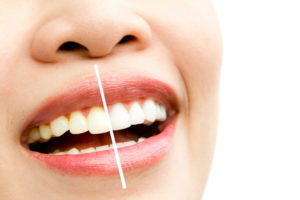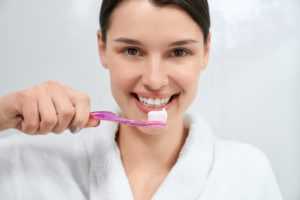You’ve just invested time and money into achieving a dazzling white smile through a dentist in Bundoora or at-home teeth whitening. Congratulations! Now, the key is to keep that smile sparkling for as long as possible. Maintaining your pearly whites requires a little effort and awareness of certain habits and lifestyle choices. This comprehensive guide will equip you with the knowledge and tips you need to prolong the brilliance of your whitened smile.
Understanding Why Teeth Stain

Before diving into maintenance, it’s helpful to understand why teeth stain in the first place. Several factors contribute to tooth discoloration:
- Extrinsic Stains: These stains occur on the enamel’s surface and are often caused by consuming certain foods and drinks (coffee, tea, red wine, dark sodas), smoking, and poor oral hygiene.
- Intrinsic Stains: These stains originate within the tooth itself and can be caused by aging, certain medications (like tetracycline), trauma, or excessive fluoride intake during tooth development.
While whitening can address many extrinsic stains, intrinsic stains are often more challenging to treat and may require different approaches, such as veneers or bonding.
Immediate Aftercare is Crucial
The first 48 hours after your whitening treatment are the most critical. Your teeth are more susceptible to staining during this period, as the pores in your enamel are more open. Think of your teeth like a sponge – they’re more absorbent right after whitening. Therefore, it’s essential to be extra diligent with your diet and habits.
- The “White Diet”: Stick to a “white diet” for the first couple of days. This means avoiding anything that could potentially stain your teeth, including:
- Dark-coloured beverages: Coffee, tea, red wine, cola, fruit juice (especially grape and cranberry).
- Dark or intensely coloured foods: Chocolate, berries, soy sauce, beets, spinach, carrots.
- Acidic foods: Citrus fruits, vinegar, tomatoes. Acids can temporarily soften enamel, making it more prone to staining.
- Tobacco products: Smoking or chewing tobacco is a major culprit in tooth discoloration.
- Hydration is Key: Drink plenty of water. Water helps rinse away any lingering staining agents and keeps your mouth hydrated.
After the initial 48 hours, you can gradually reintroduce your regular diet. However, maintaining good oral hygiene and making smart lifestyle choices are crucial for long-lasting results.
Excellent Oral Hygiene

- Brush Regularly: Brush your teeth at least twice a day for two minutes each time, using a soft-bristled toothbrush and fluoride toothpaste.1 Pay attention to all tooth surfaces, including the back teeth and gum line.
- Floss Daily: Flossing removes plaque and food particles from between your teeth, where your toothbrush can’t reach. This is essential for preventing both staining and gum disease.
- Use a Whitening Toothpaste: While whitening toothpaste alone won’t dramatically whiten your teeth, it can help maintain the brightness achieved through professional or at-home whitening. Look for toothpaste that contains gentle abrasives and stain-dissolving ingredients.
- Consider a Whitening Mouthwash: Some mouthwashes contain ingredients that can help prevent staining and freshen breath. Use them as directed.
Dietary Habits
- Limit Staining Foods and Drinks: While you don’t have to completely eliminate staining foods and beverages, moderation is key. If you do consume them, rinse your mouth with water afterward or brush your teeth if possible.
- Use a Straw: When drinking dark-coloured beverages, using a straw can help minimize contact with your teeth.
- Eat Crunchy Fruits and Vegetables: These foods can act as natural cleansers, helping to remove surface stains.
Avoid Tobacco Products: Smoking and chewing tobacco are major contributors to tooth discoloration and numerous other health problems. Quitting is the best thing you can do for your oral health and overall well-being.
Be Mindful of Certain Medications: Some medications can cause tooth staining as a side effect. If you are concerned about medication-related staining, talk to your doctor or dentist.
Home Whitening Kits for Maintenance: Your dentist may recommend using at-home whitening kits periodically to maintain your bright smile. Follow their instructions carefully.
Addressing Tooth Sensitivity: Some people experience tooth sensitivity after whitening. If you are prone to sensitivity, use toothpaste designed for sensitive teeth. Your dentist may also recommend other products or treatments to help manage sensitivity.
When to See Your Dentist?
If you notice any significant changes in the colour of your teeth, experience persistent tooth sensitivity or have any other concerns about your oral health, don’t hesitate to contact your dentist. They can assess your situation and recommend the best course of action.
Are you ready to keep your smile sparkling? Greenwood Plenty Dental Care offers professional teeth whitening and comprehensive dental services to help you achieve and maintain a dazzling smile. From general dentistry and emergency dental care to orthodontics, kids’ dentistry, root canal treatments, and broken tooth repair in Bundoora, we’ve got you covered. Contact us today at (03) 9466 7843 to schedule your appointment and discover how we can help you achieve your smile goals. We proudly serve the Bundoora community and look forward to welcoming you to our practice!








